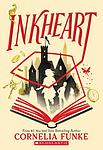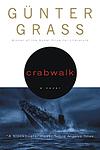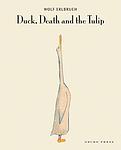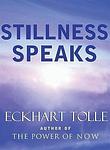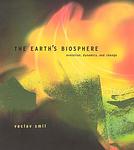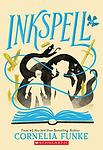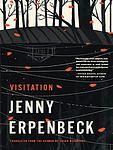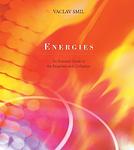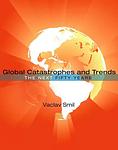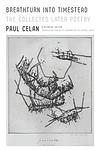The Greatest Czech, German Books Since 2000
Click to learn how this list is calculated.
This list represents a comprehensive and trusted collection of the greatest books. Developed through a specialized algorithm, it brings together 305 'best of' book lists to form a definitive guide to the world's most acclaimed books. For those interested in how these books are chosen, additional details can be found on the rankings page.
Genres
Countries
Date Range
Reading Statistics
Click the button below to see how many of these books you've read!
Download
If you're interested in downloading this list as a CSV file for use in a spreadsheet application, you can easily do so by clicking the button below. Please note that to ensure a manageable file size and faster download, the CSV will include details for only the first 500 books.
Download-
1. Austerlitz by W. G. Sebald
The novel follows the story of Jacques Austerlitz, an architectural historian who was brought to England on a Kindertransport from Czechoslovakia during World War II. As an adult, Jacques embarks on a journey to uncover his past, including his original identity, his parent's fate, and his own lost history. The narrative is a haunting exploration of memory, identity, and the lasting impact of the Holocaust.
The 465th Greatest Book of All Time -
2. The Book Thief by Markus Zusak
Set in Nazi Germany during World War II, the novel follows the story of a young girl who finds solace in stealing books and sharing them with others. In the midst of the horrors of war, she forms a bond with a Jewish man her foster parents are hiding in their basement. The story is narrated by Death, offering a unique perspective on the atrocities and small acts of kindness during this period. The girl's love for books becomes a metaphor for resistance against the oppressive regime.
The 552nd Greatest Book of All Time -
3. The Swarm by Frank Schatzing
"The Swarm" is a science fiction novel that explores the disastrous consequences of mankind's exploitation of the world's oceans. The narrative follows a group of scientists around the world as they try to understand a series of inexplicable, catastrophic natural disasters. They eventually discover that these events are not random but are the result of a collective intelligence in the sea, a swarm of marine life that has decided to fight back against humanity's destruction of their habitat. The book combines elements of ecological thriller, disaster novel, and speculative fiction as it explores the potential consequences of human interference with the natural world.
The 3162nd Greatest Book of All Time -
4. Inkheart by Cornelia Funke
The book revolves around a young girl named Meggie and her father Mo, who possesses a unique ability to bring characters from books to life by reading aloud. This gift, however, comes with a price, as they are entangled in a dangerous adventure when a villain from a fantasy book called "Inkheart" is accidentally summoned into the real world. As they struggle to fix the chaos caused by this crossover, they must navigate a treacherous world of magic and betrayal, while attempting to thwart the villain's sinister plans and protect the balance between reality and the fantastical realms of literature.
The 3185th Greatest Book of All Time -
5. Measuring the World by Daniel Kehlmann
"Measuring the World" is a historical novel that reimagines the lives of two brilliant and driven men, German mathematician Carl Friedrich Gauss and German geographer Alexander von Humboldt. The narrative alternates between the two protagonists, exploring their individual quests to quantify and understand the world. Gauss, a child prodigy from a poor family, rises to become one of the greatest mathematicians in history, while Humboldt, a wealthy and ambitious explorer, embarks on a five-year journey across South America. Their paths converge in a humorous and touching manner, highlighting the contrast between their approaches to knowledge and discovery.
The 5006th Greatest Book of All Time -
6. The Blind Side of the Heart by Julia Franck
"The Blind Side of the Heart" is a historical novel that explores the life of a German woman before, during, and after World War II. The story begins with her abandonment of her young son at a railway station, then flashes back to her own childhood, her experiences during the war, and her tumultuous relationships. The narrative provides a deep and unflinching look at the psychological effects of war and the struggle for survival, as well as the profound impact of trauma and loss.
The 5834th Greatest Book of All Time -
7. Essays On Music by Theodor Adorno
This collection is a comprehensive anthology of critical essays on the subject of music, written by one of the 20th century's most influential philosophers and social critics. The work delves into the complexities of musical composition, performance, and reception, offering a profound exploration of the social, political, and cultural dimensions of the musical experience. The author critiques the commodification of music in capitalist societies and the way this impacts artistic authenticity and the listener's experience. Through a series of essays, the author examines various genres and eras, from classical to jazz to popular music, applying a rigorous theoretical framework that draws from Marxist thought, sociology, and psychoanalysis to dissect the role of music in modern life.
The 5891st Greatest Book of All Time -
8. Crabwalk by Günter Grass
This novel delves into the tragic sinking of the Wilhelm Gustloff, a German ship, during World War II, through the eyes of a journalist investigating the event's historical and personal ramifications. The narrative weaves together past and present, exploring the intergenerational impact of the catastrophe on survivors and their descendants. The author employs a unique storytelling technique, the "crabwalk," moving backward and forward in time to reveal the complexities of guilt, memory, and the reinterpretation of history. Through its intricate plot and deep character exploration, the book addresses the themes of nationalism, the repercussions of war, and the struggle to come to terms with one's heritage.
The 6130th Greatest Book of All Time -
9. Duck, Death And The Tulip by Wolf Erlbruch
"Duck, Death And The Tulip" is a poignant and thought-provoking illustrated book that explores the themes of life, death, and friendship. The story follows a duck who unexpectedly befriends Death, and together they embark on a journey of contemplation and acceptance. Through their conversations and experiences, the book delicately tackles the existential questions surrounding mortality, while offering a tender and comforting perspective on the inevitability of death.
The 6874th Greatest Book of All Time -
10. Stillness Speaks by Eckhart Tolle
The book is a guide to discovering profound inner peace and serenity through the power of mindfulness and stillness. It delves into the transformative potential of living in the present moment and disengaging from the constant chatter of the mind. The author presents a series of meditative insights and wisdom that encourage readers to connect with the depth of the present moment, transcending ego-driven thoughts and emotions. By embracing stillness, the book suggests that individuals can access a deeper sense of self-awareness, leading to a more fulfilling and enlightened existence.
The 6940th Greatest Book of All Time -
11. The Invention Of Nature: Alexander Von Humboldt’s New World by Andrea Wulf
"The Invention of Nature" is a biographical account of Alexander von Humboldt, a 19th-century explorer, scientist, and naturalist who revolutionized the way we understand the natural world. Andrea Wulf chronicles Humboldt's travels across South America, his encounters with indigenous peoples, and his groundbreaking scientific discoveries that challenged prevailing notions of the natural world. Humboldt's ideas about interconnectedness and the unity of nature were ahead of their time and continue to influence environmentalism and conservation today. Wulf's book is a masterful exploration of one of history's most fascinating and influential figures.
The 7072nd Greatest Book of All Time -
12. Thomas Mann Heinrich Mann by Helmut Koopmann
The book provides a comprehensive study of the lives and works of two prominent German literary figures, who were also brothers. It delves into their complex relationship, contrasting ideologies, and individual contributions to literature and culture. The author examines their personal and professional journeys, exploring how their differing views on art, politics, and society reflected the broader intellectual and historical currents of their time. Through a detailed analysis of their novels, essays, and other writings, the book offers insights into the brothers' influence on each other and on the literary world, highlighting their lasting legacy in the context of German and world literature.
The 7131st Greatest Book of All Time -
13. Crime by Ferdinand Von Schirach
"Crime" is a collection of short stories that explores the complexities of human behavior and the legal system. Each story presents a different crime and delves into the motivations and consequences behind it, challenging readers to question their own notions of justice and morality. With a keen eye for detail and a unique perspective, the author weaves together thought-provoking narratives that expose the intricacies of the human psyche and the flaws of the legal system.
The 8155th Greatest Book of All Time -
14. The Earth's Biosphere by Vaclav Smil
This book provides a comprehensive overview of the Earth's biosphere, exploring the complexity and resilience of life on our planet. It delves into the intricate relationships between the biosphere's various components, including ecosystems, organisms, and the physical environment, while also examining the impact of human activities on these natural systems. The author synthesizes a vast array of scientific knowledge to present a detailed yet accessible understanding of how the biosphere functions, its evolutionary history, and the critical challenges it faces in the modern era. Through this exploration, the book highlights the importance of sustainable practices to preserve the delicate balance of life on Earth for future generations.
The 8339th Greatest Book of All Time -
15. Along The Ganges by Ilija Trojanow
The book is a travelogue that takes the reader on a captivating journey along the sacred Ganges River, from its source in the Himalayas to its delta in the Bay of Bengal. The narrative is rich with descriptions of the diverse landscapes, cultures, and people encountered by the author. It delves into the profound spiritual significance of the river to millions of Hindus, as well as the contemporary challenges it faces due to pollution and modernization. Through personal reflections and encounters, the author explores the complex relationship between the river and the civilization it has nurtured for centuries, offering insights into the historical, religious, and ecological aspects of this iconic waterway.
The 8445th Greatest Book of All Time -
16. Creating The Twentieth Century by Vaclav Smil
This book provides a comprehensive analysis of the technical innovations and scientific discoveries that fundamentally transformed the 20th century, laying the groundwork for modern society. It delves into the period from 1867 to 1914, which the author identifies as crucial years when core technologies such as electricity, the internal combustion engine, and basic chemical processes were developed. These innovations, the book argues, set the stage for the unprecedented economic growth and improvement in human well-being that characterized the 20th century. Through a detailed examination of the interplay between technological advancement and societal change, the narrative explores how these foundational developments have shaped the contemporary world, highlighting both the positive outcomes and the challenges they have brought.
The 8560th Greatest Book of All Time -
17. Inkspell by Cornelia Funke
This novel transports readers back into a mesmerizing world where the boundaries between reality and fiction blur. The story follows a young girl and her father, who possess the magical ability to bring book characters to life by reading aloud. As they navigate the challenges of the Inkworld, a place crafted from the pages of a book, they face a villain determined to exploit their powers for his own sinister purposes. Alongside a cast of vividly drawn characters, both human and otherwise, they embark on a quest to save the Inkworld from destruction, exploring themes of courage, loyalty, and the power of storytelling.
The 8679th Greatest Book of All Time -
18. Visitation by Jenny Erpenbeck
"Visitation" is a novel that explores the history of a house located by a lake in Brandenburg, Germany, and the various inhabitants it has seen over the centuries. The narrative spans from the early 20th century to the post-war period, encompassing the tumultuous events of the Weimar Republic, the Third Reich, and the German Democratic Republic. Each chapter is dedicated to a different resident's story, including a Jewish family, an architect, a young girl, and a Soviet officer, among others, creating a tapestry of human experiences and emotions shaped by the historical and political upheavals of the time.
The 8938th Greatest Book of All Time -
19. Conquest Of The Useless by Werner Herzog
"Conquest of the Useless" is a reflective memoir that presents a collection of the author's diary entries written during the tumultuous production of a major film in the early 1980s. Set in the heart of the Amazon rainforest, the narrative captures the intense challenges faced by the film crew, ranging from logistical nightmares and clashing personalities to confrontations with nature and local cultures. The author's poetic and introspective prose delves into the emotional and existential upheavals experienced during the making of the film, revealing his relentless determination and the surreal experiences encountered in a remote and demanding setting.
The 9025th Greatest Book of All Time -
20. Energies by Vaclav Smil
This book provides a comprehensive exploration of the various forms of energy that power the planet, from traditional fossil fuels to renewable sources like wind and solar power. The author delves into the scientific principles underlying energy conversion, storage, and transmission, offering insights into the complexities of energy systems and their impacts on the environment and society. Through a detailed analysis, the book presents a balanced view on the challenges and opportunities of transitioning to a more sustainable energy future, emphasizing the need for informed policy decisions and technological innovations.
The 9042nd Greatest Book of All Time -
21. Global Catastrophes And Trends by Vaclav Smil
This book provides a comprehensive analysis of the major natural and human-induced disasters and trends that have the potential to significantly alter the course of human civilization. It delves into a wide array of topics, from environmental degradation and climate change to the risks of nuclear warfare and pandemics, offering a detailed examination of their causes, impacts, and the likelihood of their occurrence. The author meticulously assesses the probability and severity of these global challenges, combining scientific research with historical context to evaluate how they might shape the future. Through a blend of rigorous analysis and insightful commentary, the book aims to enhance our understanding of the complex dynamics that govern our world and the potential pathways to mitigate these global risks.
The 9042nd Greatest Book of All Time -
22. Fortune's Wheel by Rebecca Gablé
"Fortune's Wheel" is a historical novel that transports readers to the tumultuous period of the Hundred Years' War and the Black Death in Europe. The story revolves around a young English craftsman who rises from the ashes of personal tragedy. As he navigates the complex social hierarchies and political turmoil of the 14th century, he finds himself caught between loyalty and ambition, love and duty. The protagonist's journey is one of resilience and transformation, set against the backdrop of a world where the whims of fate can uplift or destroy the fortunes of men. Through vivid storytelling, the novel explores themes of power, destiny, and the enduring human spirit.
The 9098th Greatest Book of All Time -
23. Memory Rose Into Threshold Speech: The Collected Earlier Poetry by Paul Celan
"Memory Rose Into Threshold Speech: The Collected Earlier Poetry" is a compilation of the early poetry works of Paul Celan. The book delves into themes of memory, language, and the human experience, showcasing Celan's unique style and exploration of complex emotions. Through his powerful and evocative language, Celan invites readers to reflect on the profound impact of memory and the transformative power of words.
The 9157th Greatest Book of All Time -
24. Energy Myths And Realities by Vaclav Smil
In "Energy Myths and Realities," the author critically examines the widespread misconceptions surrounding energy and its future. Through a rigorous analysis of data and trends, the book debunks popular myths about the potential of renewable energy sources, the pace of energy transitions, and the feasibility of achieving rapid changes in energy systems. It emphasizes the complexity of energy production and consumption, arguing for a more nuanced understanding of energy realities. The author advocates for realistic expectations and pragmatic approaches to energy policy and innovation, cautioning against the dangers of oversimplification and the allure of quick fixes in the discourse on energy sustainability and security.
The 9206th Greatest Book of All Time -
25. Energy Transitions by Vaclav Smil
This book provides a comprehensive analysis of the historical shifts in energy sources and consumption patterns, from traditional biomass to fossil fuels and the potential future transition to renewable energy sources. It examines the technological, economic, and environmental challenges associated with these energy transitions, emphasizing the complexity and duration of these shifts. The author argues that while transitions to more efficient and less environmentally damaging energy sources are necessary, they will be gradual and require significant technological innovations and societal adaptations. Through a detailed exploration of past and present energy systems, the book offers insights into the future of global energy consumption and the path towards a more sustainable energy landscape.
The 9206th Greatest Book of All Time
Reading Statistics
Click the button below to see how many of these books you've read!
Download
If you're interested in downloading this list as a CSV file for use in a spreadsheet application, you can easily do so by clicking the button below. Please note that to ensure a manageable file size and faster download, the CSV will include details for only the first 500 books.
Download


